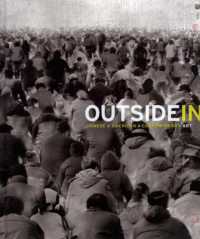- ホーム
- > 洋書
- > 英文書
- > History / World
Full Description
A new account of the relevance of Hegel's ideas for today's world, countering the postwar anti-Hegel "insurgency"
G.W.F. Hegel was widely seen as the greatest philosopher of his age. Ever since, his work has shaped debates about issues as varied as religion, aesthetics and metaphysics. His most lasting contribution was his vision of history and politics. In Hegel's World Revolutions, Richard Bourke returns to Hegel's original arguments, clarifying their true import and illuminating their relevance to contemporary society. Bourke shows that central to Hegel's thought was his anatomy of the modern world. On the one hand he claimed that modernity was a deliverance from subjection, but on the other he saw it as having unleashed the spirit of critical reflection. Bourke explores this predicament in terms of a series of world revolutions that Hegel believed had ushered in the rise of civil society and the emergence of the constitutional state.
Bourke interprets Hegel's thought, with particular reference to his philosophy of history, placing it in the context of his own time. He then recounts the reception of Hegel's political ideas, largely over the course of the twentieth century. Countering the postwar revolt against Hegel, Bourke argues that his disparagement by major philosophers has impoverished our approach to history and politics alike. Challenging the condescension of leading thinkers—from Heidegger and Popper to Lévi-Strauss and Foucault—the book revises prevailing views of the relationship between historical ideas and present circumstances.








